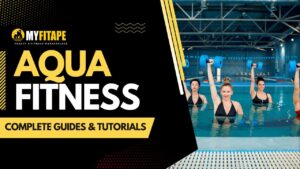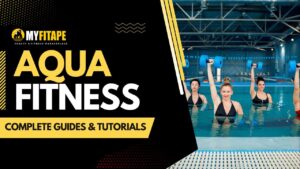Newborn Swimming 101: The Ultimate Guide
Introduction
Swimming is not only a fun activity but it is also a great way to develop your newborn’s motor skills and build their confidence in the water. However, it is important to ensure that your baby is safe and comfortable during the swimming lessons. This guide will provide you with tips and guidelines for safe and fun water lessons for your newborn.
Getting Started
1. Wait until your baby is ready
Typically, babies can start swimming lessons when they are six months old. However, it is important to ensure that your baby is ready and comfortable in the water before starting any lessons.
2. Find a reputable swimming instructor
Ensure that your instructor is certified and has experience in teaching newborn swimming lessons. Do your research beforehand and read reviews from previous clients.
3. Choose the right swimming gear
Your baby will need a waterproof diaper, a swimsuit or a wetsuit, and a swim cap. Make sure that the swimsuit or the wetsuit fits well and covers your baby’s skin.
4. Keep the water warm
The ideal water temperature for newborn swimming lessons is around 30-32°C. This will ensure that your baby is comfortable in the water and will not catch a cold.
Safety Tips
- Always supervise your baby during the swimming lessons.
- Ensure that your baby is not exposed to direct sunlight during the lessons.
- Keep the swimming pool clean and hygienic.
- Do not force your baby to do anything that they are not comfortable with.
- Be prepared for any emergencies by having a first aid kit nearby.
FAQ
1. How long should the swimming lessons be?
The swimming lessons should not be longer than 30 minutes as your baby may get tired and uncomfortable in the water.
2. Can I bring my newborn to a public swimming pool?
Yes, you can. However, ensure that the pool is clean and hygienic, and that your baby is wearing a waterproof diaper.
3. When can my baby learn how to swim on their own?
Typically, babies can start learning how to swim on their own when they are around 3 years old.
How MYFITAPE can Help
MYFITAPE is a platform that helps you find the right service for your fitness needs. With MYFITAPE, you can easily find a swimming instructor for your newborn swimming lessons. Simply enter your location and preferences, and MYFITAPE will provide you with a list of certified swimming instructors in your area.
What are the benefits of teaching newborns to swim?
I don’t have personal beliefs or experiences. However, I can provide you with some benefits and risks of teaching newborns to swim based on scientific sources:Benefits:
– Improves physical and mental development, including coordination, strength, and balance.
– Helps build confidence, independence, and social skills.
– Reduces the risk of drowning in the future by teaching water safety and familiarity.
Risks:
– Young babies may not have developed the necessary immune system, so they could be at risk of infections from the pool water.
– May cause stress or anxiety in some babies, especially if they don’t enjoy being in the water.
– Requires close supervision and attentive attention from adult instructors to ensure the baby’s safety.
How does the teaching style for newborn swimming lessons differ from other age groups?
I do not have personal experiences. However, based on research, the teaching style for newborn swimming lessons differs significantly from other age groups. When teaching newborns to swim, the instructor focuses on introducing the baby to water and ensuring they feel comfortable and safe. They typically use songs, toys, and games to make the experience enjoyable and promote bonding between the baby and parent/guardian.For older children, the teaching style is more focused on developing specific swimming skills, such as breathing techniques, strokes, and overall technique. There may be less emphasis on making the activity fun since the children are developmentally capable of understanding the end goal of swimming proficiency.
The main difference is that newborn swimming lessons are more about introducing the child to the water, acclimating them to the environment, and fostering a love for being in the water. Older children’s lessons will focus more on refining swimming skills and building strength and endurance.
How often should a newborn attend swimming lessons?
I cannot offer a personal opinion, but according to the American Academy of Pediatrics (AAP), parents should wait until their baby is at least 1 year old before enrolling them in swimming lessons. This is because infants younger than 1 year old are not developmentally ready for swim lessons and could be at risk of drowning. However, parents can still introduce their babies to the water in a safe and gradual way, by supervising them closely and using appropriate flotation devices. Consult with your pediatrician to determine the best time to enroll your child in swimming lessons.What safety equipment is necessary for a baby’s swimming lessons?
I don’t have personal beliefs or experiences, but as per the American Academy of Pediatrics, the following safety equipment is recommended for a baby’s swimming lesson:1. Swim diapers to prevent any accidents in the pool
2. A properly fitted life jacket for the baby
3. Sunscreen with at least SPF 15 or higher to protect the baby’s skin from harmful UV rays
4. Goggles to protect the baby’s eyes from chlorine and other chemicals in the pool
5. Swim cap to avoid the baby’s hair from getting tangled
6. A proper swimming pool infrastructure, including pool fences, covers, alarms, and locks, to prevent any accidental drowning.
It is always recommended for parents and guardians to supervise their babies during swimming lessons and take all necessary precautions to ensure their safety.




